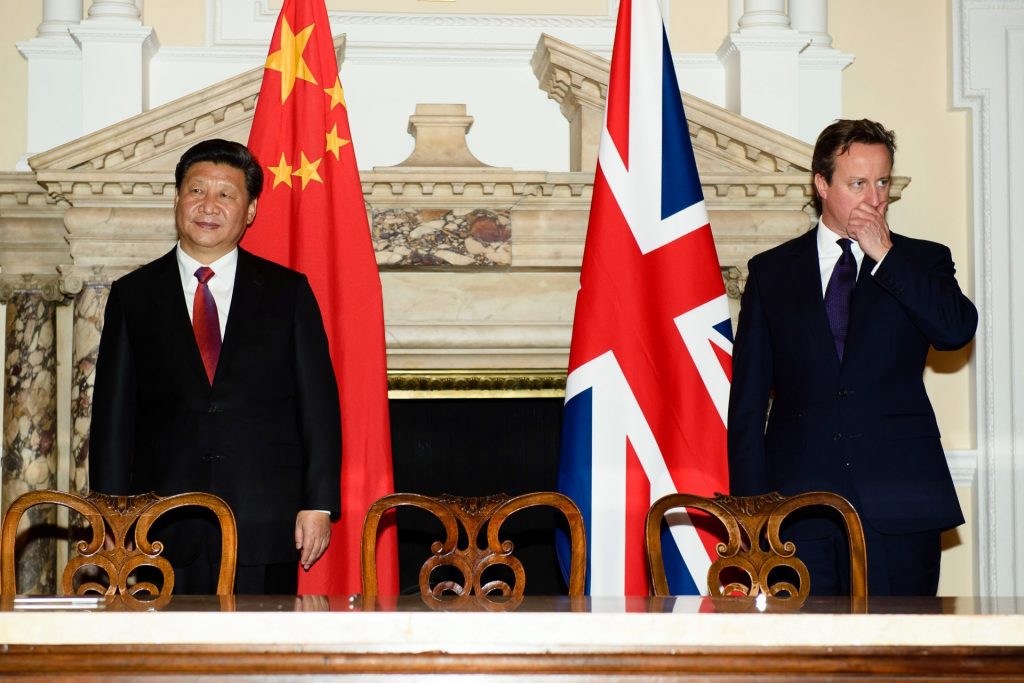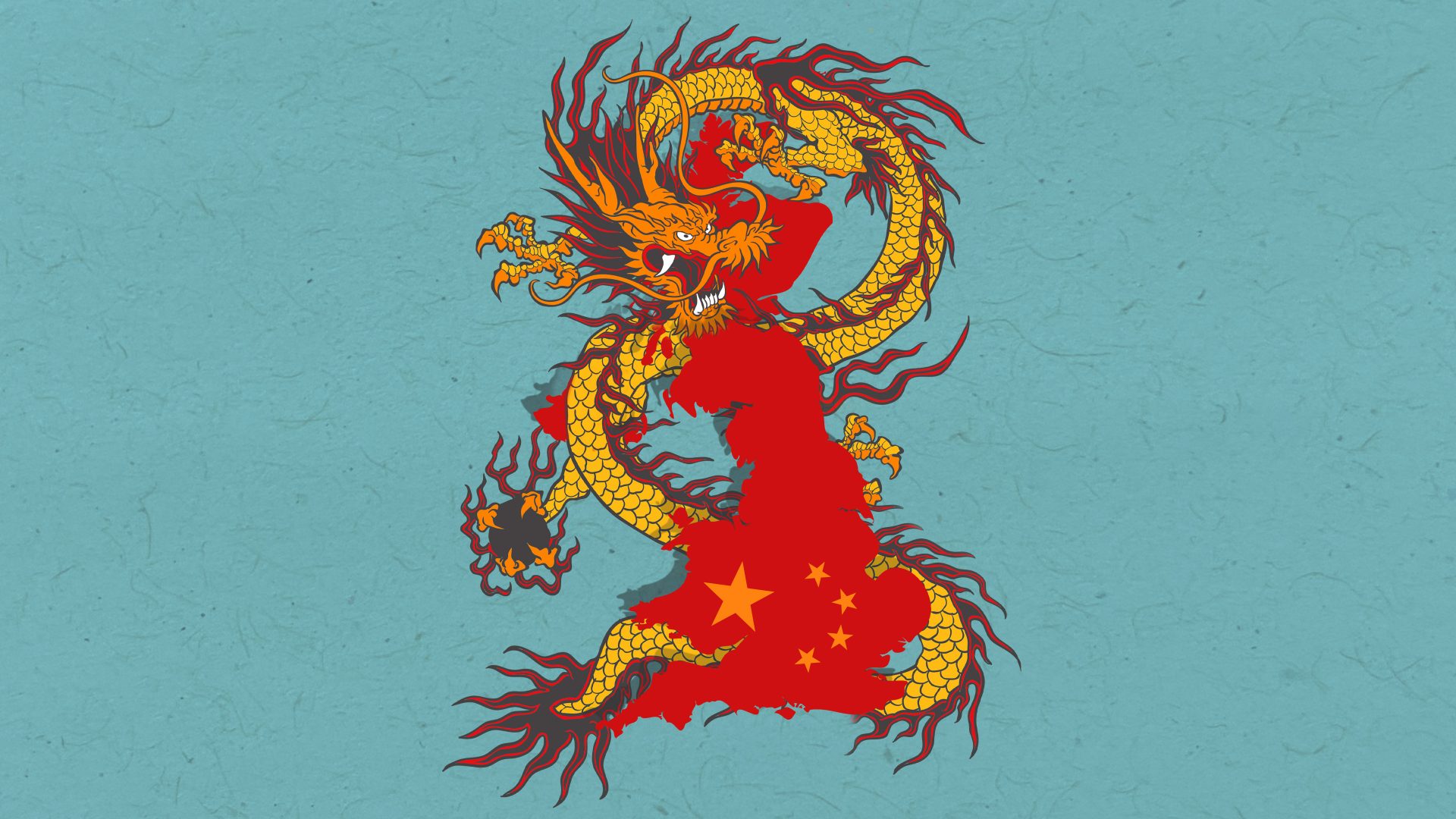Around 23 centuries ago a Cypriot named Zeno moved to Athens and set up shop as a philosopher. His followers came to be called Stoics, because they met in a shady, colonnaded stoa around Athens’s marketplace, where Zeno explained life to them in homely analogies.
Imagine, he liked to say, that you are a puppy, tied to the back of a cart. Puppies have free will – in abundance – so, when the cart starts moving, you are able to decide what to do. You can trot along with the cart, enjoying your run and perhaps catching scraps dropped by the people in it; or you can race off in a different direction; or you can refuse to move at all, in which case you’ll be dragged by the neck or even run over.
None of us, Zeno insisted, is strong enough to ignore the vast impersonal forces that pull us around – but neither are we so weak as to lack all choice. We are neither fate’s pawns nor its masters. The secret of success is seeing which way the cart is going and working out how to make the most of it.
Big history shows that geography is the key to working out what the cart is doing. We experience the cart’s movement through its impact on identity, mobility, prosperity, security and sovereignty, but if we want to understand what is actually happening, we need to dig down to the maps. Only by observing how technology and organisation determine the size of the stage we act on can we, as individuals or communities, identify the most important actors and find the most rewarding role for ourselves.
With varying degrees of success, this is what Britons have been doing for the entire 8,000 years since the Isles physically formed. For most of that time Britain’s stage was limited to western Europe and was dominated by actors off to the south and east. For people in what eventually became England, history was largely about dealing with what came their way from the continent; for those further north and west, it was about what came their way from England.
The stage was stretched towards the Mediterranean by Rome, reoriented towards the Baltic after the empire fell and then enlarged enormously after Columbus and Cabot escaped from the Hereford Map, but at every point it has been up to islanders themselves to work out which way to run, and ho fast. This is what the great strategic debates of the last half-millennium – over Catholicism, the balance of power, splendid isolation, imperial preference, the Atlantic alliance, the European Union – have all ultimately been about, and it is what arguments will continue to be about in the 21st century.
After pulling the puppy westwards across the Atlantic for more than a century, history’s cart is now heading east again. The question that should have been on the referendum in 2016 was not what to do about Brussels. It was what to do about Beijing.
What made the wrangling over Brexit such a disaster was that leavers and remainers consumed a crucial halfdecade in arguing over resolutely short-term, superficial issues of identity, mobility, prosperity, security and sovereignty, while leaving long-term geography least spoken of. That error allowed both camps to indulge in a shared delusion that Europe still filled the stage.
The political scientist Kerry Brown tells a revealing (or perhaps horrifying) story about giving a public lecture on Anglo-Chinese relations shortly before the 2016 vote. “The audience listened to news and analysis of the fundamental rearrangement of the power structures and realignment of geopolitical forces in the world they were living in with an almost preternatural calm,” he says, while just metres away “a debate on the UK and the EU in a neighbouring room nearly ended in a riot.” History’s cart was rolling eastwards, but Zeno’s dog was running the wrong way.
At roughly the same time that Zeno was theorising in Athens, the authors of the Indian epic the Mahabharata – living through an era when hundreds of separate city-states in the Ganges Valley were being consolidated into a few empires – proposed that international relations are governed by a “law of the fishes”: that in times of drought the big fish eat the little ones. In the 21st century the whole world is consolidating. We are living through a mega-drought.
Today’s little fish, a former deputy secretary-general of the United Nations observes, are “start[ing] to think in a defensive way about blocs”. The best way to avoid being eaten by one big fish, governments are concluding, is by attaching themselves to another (hopefully less threatening) big fish. Yet this is just the moment, he adds, that Britain has chosen to cast itself “adrift without a bloc”.
Consolidation is not a new story. A European fish has been eating Britain since 1973, and an American one since 1916. They have just been doing it quietly. Earlier big fish – Romans, Saxons, Vikings, Normans – tore into the Isles like Jaws, and Hitler or Stalin would have done much the same; but 20th-century Washington and Brussels acted more like shoals of minnows. Little by little, they nibbled away at British sovereignty and identity until governments in London had less say over the Isles’ prosperity and security (and, in Europe’s case, mobility) than their counterparts in Washington and Brussels. The 2016 debates focused obsessively on whether European nibbling was good or bad for Britain, but would have done better to ask whether it was good or bad relative to what a Britain outside the European Union would experience from China.
Some analysts, particularly American ones, infer from Beijing’s behaviour in Xinjiang, Tibet and Hong Kong that Jaws is again attacking. “If we bend the knee now,” Donald Trump’s secretary of defence said in 2020, “‘our children’s children may be at the mercy of the Chinese Communist party.” Other observers (particularly in China) insist that China barely even qualifies as a minnow. The real issue, says one financier, is that westerners are “so used to your supremacy. Your being treated nicely by everyone. It hurts to think, OK, now we have to be on an equal footing to other people.” Somewhere in the middle, and frankly much more convincing, is Kerry Brown’s measured assessment that “Chinese interests in the UK fall into three broad categories: investment, finance and intellectual partnership (the latter inclusive of technology and expertise)”.
The accountants are coming – but there will be no Chinese armada shooting its way up the Channel, no prime minister rallying the troops at Tilbury. China will be a nibbler, too. Nibbling with Chinese characteristics will in many ways look rather like the American and European versions, particularly as regards prosperity.
British incomes quadrupled in real terms between the first tranche of Marshall Plan aid in 1948 and voting to leave the European Union in 2016. Most economists expect Brexit to hurt prosperity (the Bank of England thinks the economy will be 3-4% smaller by 2030 than it would have been otherwise), but its champions counter that a nation freed from Brussels will reinvent itself as Global Britain. Rather than being “confined to the immediate European hinterland as we see the rise of new powers,” Boris Johnson suggests, “we should make a new approach to policymaking, as regards China”. The plan is that by turning into what critics mock as “Singapore-on-Thames” – a low-tariff, low-tax and low-regulation hub for global commerce – Britain will generate more than enough prosperity to offset the post-Brexit red ink.
Global Britain will very probably face fierce European competition for the same Chinese trade, and American antagonism to leaning eastwards, and even if it weathers these successfully, the consequences may not be to everyone’s liking. Not least, running to China seems certain to boost mobility, such a red line for Brexiteers. Some of the forces driving mobility are beyond Britain’s control: the World Bank expects 140 million climate refugees to flee Latin America, Africa and central and south Asia by 2050, with Britain one of their preferred destinations.
But becoming Global Britain will also require further, smaller flows of skilled, highly educated immigrants from trading partners. These have, in fact, already begun. European migration to Britain fell by three-quarters between the Brexit vote and the coronavirus outbreak in 2020, but non-European migration increased enough in this period to cancel it out. Most of the newcomers were Chinese, and most of these Chinese were students. British law limits their postgraduate residence to two years, but fully half say they hope to stay longer.
The students overwhelmingly settle in cities, chiefly London, and if Chinese business practices in other countries are any guide, tens of thousands of skilled professionals will follow in their footsteps. Some will end up in connected northern cities such as Manchester, and a few, perhaps, in less connected ones; but Singapore-on-Thames will surely widen the gaps between the south-east and everywhere else.
Global Britain also seems likely to revive the kind of anxieties about sovereignty that dogged George Osborne’s China policy in the early 2010s. Chinese diplomats regularly dismiss such concerns, arguing that its foreign policy is different from those of earlier great powers such as Britain and the US. While these 19th and 20th-century giants created unequal world-systems guaranteed by chains of military bases, China’s foreign policies are Confucian, and therefore non-coercive. However, calling a policy Confucian means no more than calling it Christian or Muslim. There is so much in the Bible, Qur’an and Confucian classics that these labels can cover almost any sin. Ancient and medieval Confucians had few qualms about using force for ends they deemed virtuous, and created profoundly hierarchical empires. It is hard to disagree with the strategist Robert Kaplan that, whatever its diplomats may say, in practice China is an “über-realist power”, pursuing advantage in ways that Palmerston would have recognised.
China has already shown what its influence might mean for the rule of law. In 2014 the Communist party devoted a plenary session of its Congress to the topic. In Washington or London any such event would have involved discussions of how law constrains government action, but in Beijing it focused on the law’s role in enforcing the party’s will – which Xi Jinping promptly extended into a call for “the rule of law in international relations”. It was perhaps this kind of law that China’s ambassador to London had in mind when he warned Britain in 2020 that “We want to be your friend […] but if you want to make China a hostile country, you will have to bear the consequences.” Being eaten by China may well compromise sovereignty much more than American and European nibbling did in the 20th century.

Like Australia in the 2010s, Britain in the 2020s may find itself having to choose between its established American security partner and an increasingly assertive Chinese economic partner. The most extreme outcome would be a British decision to abandon the American alliance and make China its chief security partner. As of the early 2020s, this looks every bit as implausible as jumping ship from the US security system to the Soviet one did during the cold war – but if China succeeds in breaking or even just outflanking the Pacific counterscarp, the shock to Britain’s strategic assumptions will be as severe as anything since the rise of the German mountain of money in the late 19th century.
Back then, Britain quickly converted its arch-rivals, France and Russia, into allies and started down the path towards a long-lasting Anglo-American partnership. So long as Palmerston’s law – that Britain’s interests are eternal while its friends are not – retains any force, it will be rash to rule out a similar strategic reshuffle within the next 30 years, turning China into an ally and the US and European Union into rivals.
The biggest barrier to such a pivot might be identity. Shared history, culture and language bind Britain to the other English-speaking peoples, and the World Values Survey’s “culture map”, compiled from thousands of responses to opinion polls, puts Britain and China at opposite extremes. Despite China’s economic triumphs, its authoritarianism is just not very attractive overseas.
The Soft Power 30 index (which defines soft power as “the ability to achieve objectives through attraction and persuasion”) ranked China 27th in the world in 2019, with a score of 51.25 out of 100, dragged down by worries about its political system. Britain, by contrast, came in at No 2, with 79.47 points, having lost its No 1 spot to France, largely over the seemingly endless Brexit wrangling.
Efforts to project Chinese soft power in the west, such as the more than 500 Confucius Institutes established on university campuses, have had mixed results at best.
The British businessman Martin Sorrell once predicted that “Chinese and computer code are the only two languages the next generation should need”, but few Britons seem convinced, at least about the former.
Out of more than 270,000 students sitting A-level exams in 2018, only 3,334 took Mandarin. They slightly outnumbered the just over 3,000 takers for German, but Spanish and French each had twice as many students. Only one state school in 12 even offers Mandarin classes, but one in three independent schools does so – another sign, perhaps, of a prosperous, mobile, Sinophile and Europhile elite pulling away from everyone else, fragmenting current senses of British identity and opening spaces for alternatives.
British identity itself is, of course, a relatively recent invention that hardly existed before the 1707 Anglo-Scottish Acts of Union. Forging a sense of Britishness was crucial to the quest to close England’s back door, but as that strategic imperative faded across the 20th century, so too did the rationale for a shared insular identity.
Polls suggest that half of all Britons expect Scotland to leave the union by 2030, and almost half of Northern Ireland’s population now favours reunification with the Republic.
The geographical logic behind the Franco-Scottish Auld Alliance of 1295 and the Saxon-Pict-Scotti “Barbarian Conspiracy” of 367 has not gone away. For Scotland and Ireland, and perhaps Wales too, climbing on to the European Union’s mountain of money could be the most sensible way to deal with their bigger English neighbour. Isolated and encircled – if that is how things turn out – the English may well wonder whether climbing the Chinese mountain is their own best option, even at the cost of becoming what Kerry Brown calls “a new kind of tributary state, economically, and eventually politically ‘owned’ by China, undermining its own values, and driven purely by mercenary motives”. Unattractive as it sounds, this may be among the least bad strategies left by mid-century if England’s freedom of manoeuvre keeps contracting.
But, as so often, “if” is the operative word. There is more to life than money. Britons in the past regularly weighed identity, mobility, security and sovereignty more heavily than prosperity, and may yet do so again. And in any case, the most important decisions will be taken far from London.
Perhaps the US and EU will come together to contain China. Or perhaps the Europeans will join China to undermine American hegemony. Or, unlikely as it looks in the early 2020s, Americans and Chinese may divide the world between them, leaving Europe out in the cold.
Any number of intermediate positions are possible, each presenting its own opportunities and challenges. Britain might double down on its old American alliance, or offer itself as a new point of junction between American, European and Chinese circles.
Then again, it might be tempted by something like the “Fortress Britain” philosophy championed by Labour leftists in the 1970s (and again, some suspected, in the late 2010s). It could even return to the EU. After all, that is what England did in 1553, 19 years after its Englexit from the original European Union – before exiting again just five years later. There are always options, and if Britain’s 8,000-year history teaches anything, it is surely that the islanders in the past have risen to plenty of challenges bigger than this one.
The first step is always to face the facts as they are rather than as we would like them to be. Every actor in the 21st-century drama confronts the same question: what would Zeno’s dog do? Big history does not provide a pre-packaged answer, because that is not how history works, but it does force us to focus on the thing least spoken of – that the meanings of geography are changing faster than ever. As the global stage expands and tilts eastwards and the cart rolls across it, the time has come to recognise that Beijing, not Brussels, is the issue.
Distracted by the Brexit debate, Zeno’s dog has spent a critical half-decade running the wrong way. In 1910, another moment when wealth and power were moving rapidly from one part of the world to another, the American poet Ella Wheeler Wilcox sent a sharp message across the Atlantic: “England, awake! from dreams of what has been, Look on what is, and put the past away.” The map has changed since Wilcox’s day, but her point has not. Britain, awake. 2103 will be here sooner than you think.
Extracted from Geography Is Destiny: Britain and the World, a 10,000 Year History (Profile, £25) by Ian Morris, a British historian, archaeologist, and Willard Professor of Classics at Stanford University



